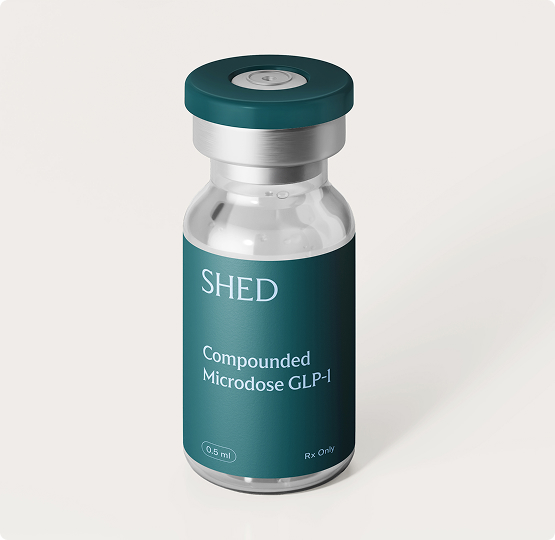Acne is something that’s typically associated with teenagers, so it can be frustrating when it persists into adulthood. However, adult acne is quite common—and it’s usually different from the acne you had as a teenager.
What is adult acne?
Adult acne isn’t just a continuation of teenage acne. It is a complex, multifactorial condition with its own triggers and presentation. Many adult patients describe having clear skin during adolescence, only to develop persistent breakouts in their late twenties, thirties, or even forties.
Adult acne is often more inflammatory, more resistant to treatment, and more deeply tied to internal physiology.
Lifestyle factors that can trigger adult acne
The skin is responsive to a wide range of systemic inputs. Any of the following can alter skin physiology:
- Stress
- Poor sleep
- Micronutrient deficiencies
- Dietary patterns
- Elevated insulin levels
- Hormonal changes
- Slower skin turnover
While teenage acne is mostly caused by puberty hormones and excess oil, adult acne has a lot more triggers, which is why it can persist for decades for some adults, even if they didn’t have acne troubles during adolescence.
Other factors that contribute to adult acne
Our physiology affects the appearance of our skin as well. No body system is truly separate from the rest, so if something isn’t working as it should in one area—like in your gut microbiome—it can show up on your skin as acne.
Elevated insulin levels
High insulin levels, especially those driven by diets high in refined carbohydrates, increase circulating IGF-1 and stimulate sebaceous gland activity. This contributes to pore clogging and inflammation.
Gut-skin axis
The gut-skin axis also plays a major role. Disruption of the gut microbiome, or gut dysbiosis, can increase intestinal permeability and raise systemic inflammatory markers, which in turn worsens skin conditions.
Hormonal irregularities
Adult acne can be a subtle indicator of hormonal irregularities. For example, women with mild hyperandrogenism may not meet criteria for PCOS, but may still experience monthly acne flares that are hormonally driven.
Other contributors
Other contributors include thyroid dysfunction, adrenal stress, and even medications such as lithium, corticosteroids, or certain antidepressants. The skincare products you use can make acne worse as well.
Best ways to treat adult acne
Treatment should be both targeted and holistic, meaning you treat the skin directly and maintain habits that support skin health.
Skincare treatment: I typically recommend a combination of topical retinoids, azelaic acid, and either oral antibiotics or spironolactone, depending on severity and hormonal context. Adjusting your skincare routine as you age is also important, as your skin’s look, feel, and overall structure will change over time.
Lifestyle adjustments: I work with patients on sleep optimization, diet quality, and stress management, all of which support skin health and help prevent acne from appearing. In some cases, functional lab testing can be helpful, particularly if we suspect a hormonal or metabolic driver. Supplements such as zinc, omega-3 fatty acids, or probiotics may provide additional support.
More than just a cosmetic issue
Ultimately, acne in adulthood is never just about how you look. It is often a signal of deeper imbalance, your skin’s way of telling you that something is a little bit off. When treated comprehensively, not only does the skin improve, but patients often report more energy, better mood, and fewer systemic complaints.
FAQs about adult acne
Why am I still getting acne as an adult?
Adult acne is driven by different triggers than teenage acne. Hormonal fluctuations, stress, poor sleep, gut imbalances, and diet can all play a role. Unlike teenage acne, adult acne is usually more inflammatory and harder to treat.
How is adult acne different from teenage acne?
Teenage acne is mostly caused by puberty hormones and excess oil, while adult acne has more complex triggers that can be lifestyle- or health-related. Adult acne often appears along the jawline and chin, whereas teenage acne tends to appear on the T-zone, which includes the forehead, nose, and chin.
Do men and women have different acne triggers?
Yes and no. Men’s acne is often linked to higher testosterone levels that increase oil production, while women’s acne is more tied to hormonal fluctuations from the menstrual cycle, pregnancy, or conditions like PCOS. However, men and women both can get acne caused by diet, stress, and other lifestyle factors.
Does stress really cause acne, or is that a myth?
Yes, stress can trigger acne. Stress increases production of the hormone cortisol, which stimulates oil production and inflammation in the skin. Chronic stress can also disrupt sleep and gut health, both of which are contributors to adult acne and overall skin health.
What foods trigger adult acne?
Diets high in refined carbs and sugars can raise insulin and IGF-1 levels, leading to excess oil production and inflammation. Dairy and ultra-processed foods can also worsen adult acne, as can a diet low in fiber.
Is adult acne a sign of an underlying health issue?
Sometimes. Adult acne can be a sign of imbalances like insulin resistance, hormonal irregularities, or gut dysfunction. That’s why it’s important to work with your doctor to address both the skin concern that you can see as well as any underlying condition(s) that may be causing it.
.svg)









